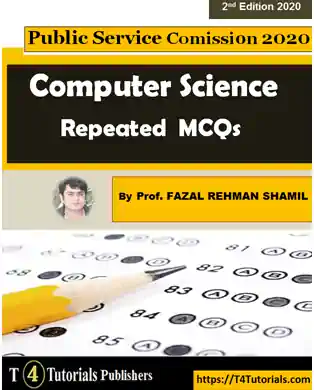20
Score: 0
Attempted: 0/20
Subscribe
MCQs of Digital Logic Design (DLD)
Introduction to Digital Systems- Analog vs. Digital signals MCQs
- Binary numbers and arithmetic MCQs
- Logic levels and noise margins MCQs
- Basic logic operations (AND, OR, NOT) MCQ
- Laws and theorems of Boolean algebra MCQ
- De Morgan’s Theorems MCQ
- Canonical forms (Sum of Products, Product of Sums) MCQ
- Simplification techniques (Karnaugh Maps, Quine-McCluskey method) MCQ
- Design and analysis of combinational circuits MCQ
- Multiplexers and Demultiplexers MCQ
- Encoders and Decoders MCQ
- Binary Adders (Half adder, Full adder) MCQ
- Subtractors and Arithmetic Logic Units (ALU) MCQ
- Comparators MCQ in DLD
- SR Latch, D Latch MCQ
- Flip-Flops (SR, D, JK, T) MCQ
- Characteristic equations and excitation tables MCQ
- Edge-triggered vs. level-triggered devices MCQ
- Synchronous, Asynchronous (ripple), Up/Down counters MCQs
- Shift registers (SIPO, PISO, SISO, PIPO) MCQs
- Read-Only Memory (ROM)
- Random Access Memory (RAM)
- Programmable Logic Devices (PLDs) MCQs
- Field Programmable Gate Arrays (FPGAs) MCQs
More MCQs of Digital Logic Design (DLD)
-
- SET 1: DLD MCQs with answers (dld mcqs with answers)
- SET 2: DLD MCQs (dld basic mcqs)
- SET 3: DLD MCQs (solved mcqs of dld)
- SET 4: DLD MCQs (dld repeated mcqs)
- SET 5: DLD MCQs (dld important mcqs)
- SET 6:DLD MCQs DLD Solved MCQs Answers PDF
 MCQs collection of solved and repeated MCQs with answers for the preparation of competitive exams, admission test and job of PPSC, FPSC, UPSC, AP, APPSC, APSC, BPSC, PSC, GOA, GPSC, HPSC, HP, JKPSC, JPSC, KPSC, KERALAPSC, MPPSC, MPSC, MPSCMANIPUR, MPSC, NPSC, OPSC, RPSC, SPSCSKM, TNPSC, TSPSC, TPSC, UPPSC, UKPSC, SPSC, KPPSC, BPSC, AJKPSC ALPSC, NPSC, LPSC, SCPSC, DPSC, DCPSC, PSC, UPSC, WVPSC, PSCW, and WPSC.
MCQs collection of solved and repeated MCQs with answers for the preparation of competitive exams, admission test and job of PPSC, FPSC, UPSC, AP, APPSC, APSC, BPSC, PSC, GOA, GPSC, HPSC, HP, JKPSC, JPSC, KPSC, KERALAPSC, MPPSC, MPSC, MPSCMANIPUR, MPSC, NPSC, OPSC, RPSC, SPSCSKM, TNPSC, TSPSC, TPSC, UPPSC, UKPSC, SPSC, KPPSC, BPSC, AJKPSC ALPSC, NPSC, LPSC, SCPSC, DPSC, DCPSC, PSC, UPSC, WVPSC, PSCW, and WPSC.